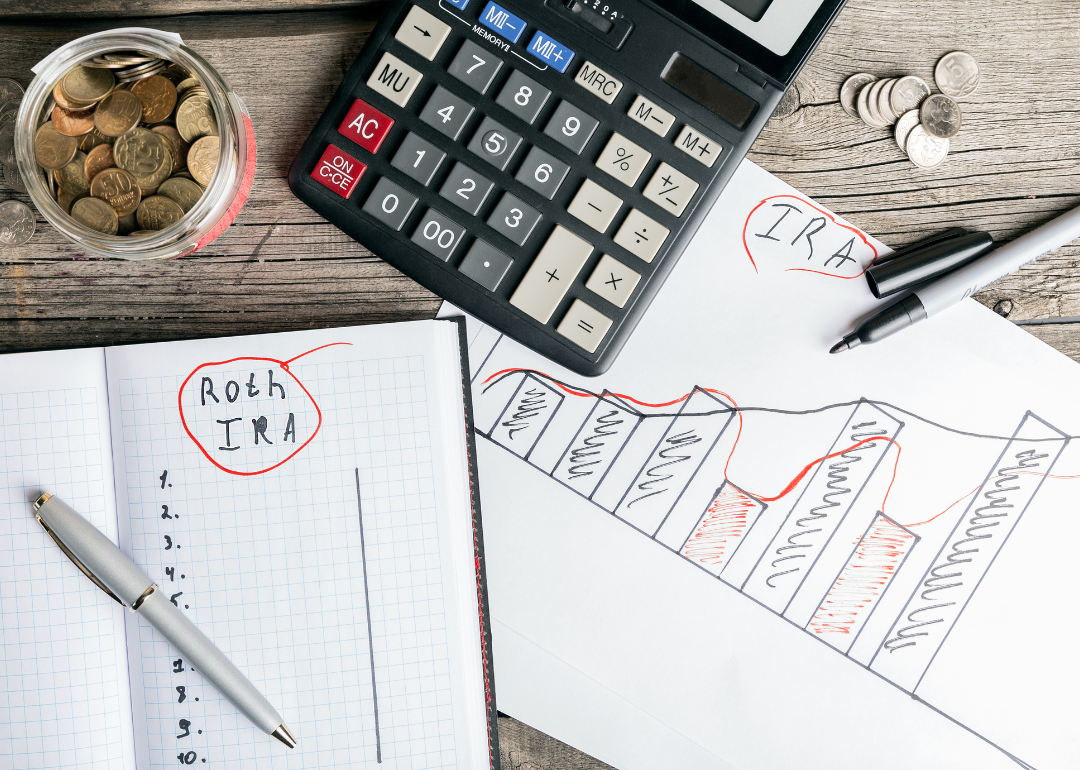
Ready to open a Roth IRA? Here are 5 key ways it can help your retirement planning
Ready to open a Roth IRA? Here are 5 key ways it can help your retirement planning
A Roth IRA is a great way to grow your retirement savings to supplement Social Security income and other retirement accounts, such as a 401k. It's easy to set up, and it offers certain advantages over other retirement accounts that are worth considering.
A Roth IRA is a type of individual retirement account that allows you to make contributions with money that has already been taxed. Your investment grows through the compounding of interest, and you can begin making withdrawals at age 59 ½ as long as the account has been open for at least five years.
TD Bank outlines some important things to know if you are considering investing in a Roth IRA.
The money you invest grows tax-free
One of the reasons why Roth IRAs are popular is because the money you contribute grows tax-free. With a traditional IRA, you invest pre-tax dollars. This means the money you contribute has not yet been taxed. When you retire, the withdrawals you make are taxed as ordinary income.
With a Roth IRA, you invest after-tax dollars, or money that has already been taxed. The money you invest then grows tax-free. When you retire, you do not pay any tax on the money you withdraw, which helps to simplify your budget.
Most people can participate
To qualify for a Roth IRA, you must meet certain income requirements. If you earn too much money, you can't contribute. Thankfully, the income thresholds are high enough that most people can participate. The income thresholds are based on your modified adjusted gross income (MAGI), which is a metric that is primarily used by the IRS.
If you are single and your MAGI is $153,000 or less in 2023, you can contribute up to $6,500 annually if you are under age 50, or $7,500 annually if you are 50 or older.
If you are married and filing jointly and your MAGI is $228,000 or less in 2023, you and your spouse can each contribute the same amount as single tax filers.
You can withdraw money when you are ready
With a traditional IRA, the IRS requires you to start making withdrawals at age 72 and to start paying taxes on them. These are called required minimum distributions (RMDs).
With a Roth IRA, there are no RMDs. You can leave your money in your account for as long as you like and start making withdrawals when you are ready. Your retirement account can continue to grow tax-free regardless of your age.
You can convert a traditional IRA into a Roth IRA
If you already have a traditional IRA, you can convert it into a Roth IRA to take advantage of the tax-free account growth. Although there are limits on how much you can contribute to an IRA each year, there's no limit on how much you can take out when you are converting it into a Roth IRA.
When you convert a traditional IRA into a Roth IRA, all of the money is treated as taxable income at the time of conversion. It's taxed at your ordinary rate. After your funds are in the Roth IRA, your investment will grow tax-free from that point forward. Your withdrawals will also be tax-free.
A Roth IRA can be passed on to a beneficiary
If you have named a beneficiary for your Roth IRA, ownership of the account will automatically pass to that person or charitable institution without having to go through the probate process. It could be your spouse, children, grandchildren, or a registered charity. It can even pass to a living trust.
Naming a Roth IRA beneficiary is simple. The administrator will provide you with a beneficiary form to fill out when you set up your account.
Potential benefits before retirement
There are other attributes of a Roth IRA that provide flexibility before retirement. Since contributions can be withdrawn at any time without penalty or taxes, the account can essentially double as an emergency fund should you need money for an unexpected event like losing your job, or a serious illness.
It's important to note that if you do pull from earnings on the account before 59 ½ years old, you will have to pay a 10% fee on those earnings.
Also, IRS rules allow you to take out up to $10,000 of Roth IRA earnings penalty-free to fund the purchase of your first home. The IRS considers you a first-time home buyer as long as you haven't owned a home for the last 2 years.
This story was produced by TD Bank and reviewed and distributed by Stacker Media.



